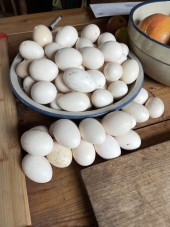





E Sager wrote:
Yikes, this place keeps sounding worse and worse! Maybe make a dead hedge with it and use it to create more edge in your garden. Wild birds will work this edge. It could double as a garden structure, you could even espalier to it or something like that. Each year, you could just top off the dead hedge with the 'new' dead stuff.
Gray Henon wrote:Wait for the burn ban to be lifted then make biochar by quenching the burn pile with water when it gets down to coals.
John Wolfram wrote:
Anyways, since you mentioned these were residential lots, do any of the areas offer curbside brush collection? If that's available, that would be my first choice.
Next, spend some time figuring out exactly what burning is banned. Just doing a quick search, it looks like the ban applies from 6 am to 6 pm in Ohio. So, you may be able burn the brush, or "have a campfire", at night. Where I am open burning is banned, but cooking over an open fire is allowed, so I always have marshmallows when I'm burning. Making the fire in a fire ring also helps make it look like I'm "cooking" rather than burning brush.
Finally, if you burn don't be a jackass. If the police show up, there's a good chance they're there because someone complained about the smoke. My property has residential to the north and commercial to the west and south. That means I only burn when the wind will blow the smoke out over the empty field to the east.
Nancy Reading wrote:Are these annual herbs Cris or woody herbs like rosemary? I'm wondering if sticking them in the water barrels to make plant food is an option. That would drown the seeds and soften herbacious stalks, but would not work on more rigid stalks like sage and thyme.